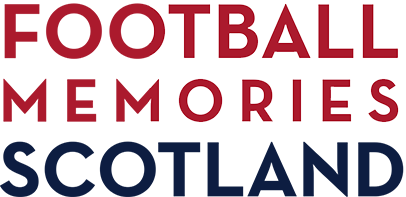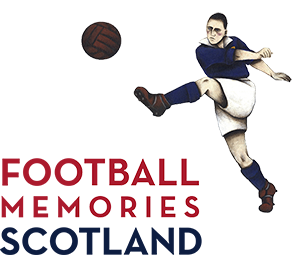Colin Liddell Obe
In a life-time of supporting Falkirk FC, one game and one result stand out. In many respects this game superseded all others; it wasn’t played on a pitch and much more was at risk than silverware or flag.
This game was played out in offices, houses, hotels and on telephones. At stake was the existence of a proud football club that had experienced many highs and lows since formed in 1876. Then, in 1996, came an all-time low, the club’s fate in the hands of an administrator.
Falkirk wasn’t the first football club in such straits, but this was my hometown team I had followed since childhood.
The club had been led – and funded – for many years by local businessmen, but the pressures of running a provincial club with limited resources led them to sell the business to new owners who had few local connections or loyalties.
While the team had successes on the field, the incessant demand for money to maintain a competitive team, increasing alienation from the local community and, ultimately, the shortage of resources and absence of a supportive business structure took their toll.
The late Campbell Christie CBE had been appointed to the board to safeguard local interests. He despaired of the club’s hand-to-mouth existence and its declining relevance in Falkirk.
With my background in communications and marketing and, particularly, in sports sponsorship, Campbell sought advice on addressing the club’s position. At the time, neither of us knew that another aspect of my experience – in corporate takeovers – would be the most needed.
As Campbell’s boardroom guest for a number of games, I was able to gain an insight into the club’s activities, and dormant passion was wakened. Brockville was in a sorry state. It was in decay, a grand old lady, unloved and past its prime; an unattractive proposition for spectators or for business and commerce.
On reflection, it was clear the way forward would be to effect change in the ownership and with that in mind, I began to consult and recruit specialists in corporate finance, accountancy and acquisition law.
The intention was to be a catalyst for change and to encourage local business leaders to mount a takeover. This was very tentative and all the professional advice reflected concern about involvement in football.
The same week I was meeting potential advisers and beginning to grasp the scale and risks of what was involved, the club was placed in interim administration. The fate of my tentative initiative was sealed.
The following months were a blur of conversations, meetings, disappointment, frustration and elation. This article would become a book if I were to recount all that happened in those heady, adrenalin-fuelled days. Falkirk FC could not have been more fortunate in having Donald McGruther, the independent administrator, an insightful, positive-thinking man determined to save the club.
While Campbell and I began to identify and contact business people who might be interested in rescuing the club – we learned a lot about human nature, with many futile, speculative conversations – it was clear it would be difficult to raise substantial funds.
The club had debts of £2.7 million and its only real asset was outline planning permission for a supermarket at Brockville. Subsequently, as new owners, we paid off all of this debt to ensure the good name of the club wasn’t tarnished and we fulfilled obligations to suppliers, staff, sponsors and other football businesses.
Some sound businessmen emerged, partly through word of mouth, but also through the administrator who acted as a broker, introducing supporters serious about saving the club.
William Moffat, son of a former director and managing director of a family catering equipment business; Douglas McIntyre, owner of Murdoch Smith, a local construction company; Martin Ritchie, a business angel who supported and advised a number of commercial ventures, came to the rescue. So, too, did Ann Joyce, a retired school teacher and lifelong fan, passionate about the club.
Together we formed a consortium to bid for the business. Then came a magical intervention by Colin MacLachlan, a local businessman and a keen golfer, who was friends with Eddie Healey, the Yorkshire-born, multi-millionaire property developer.
Colin persuaded Eddie to visit Falkirk and give his opinion on how commercial development could save and sustain the club. Eddie was impressed by the potential and, through Colin, joined the consortium. Sadly, the local planning regime was to scupper what would have been a paradigm change in Falkirk’s fortunes.
Together we were able to raise just over £600,000, realistically too little, but just enough to get us over the line. We negotiated with the owner, who was closely courted by another potential bidder, but our offer won the day.
We had a result in the most important game in Falkirk’s history!
What followed next holds lots more memories – selling and moving from Brockville; designing and building the new Falkirk Stadium; fighting to keep the business afloat with constrained funds (and no bank borrowings); fighting the football establishment; winning First Division championships and eventually our place in the Scottish Premier League and recording the club’s first profits for many years.
But these are memories for another day.

